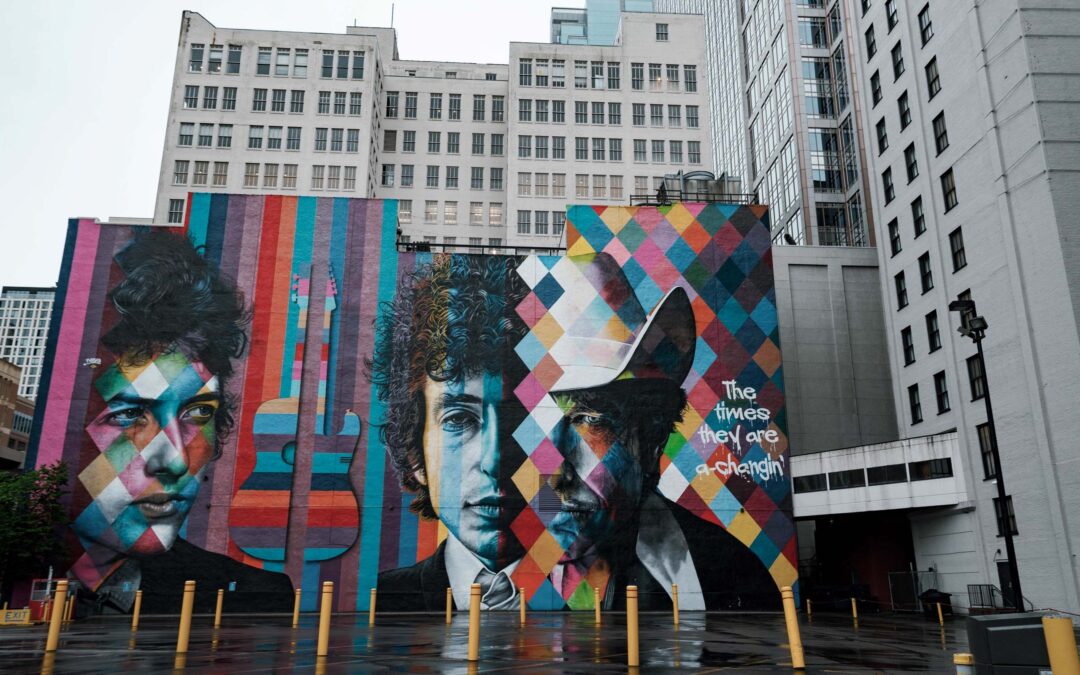We are repeatedly told that we need to innovate to stay ahead of the game. We’re not often told what that means, and certainly not how to do it.
Let’s start with what innovation isn’t.
What to innovate
It’s not the next big thing. I’ve advised dozens of startups and dozens of entrepreneurs searching for something new and different and one of the biggest, most common roadblocks is the assumption that you must produce something which is completely different.
Let’s think of an original song as an example. Bob Dylan’s “Blowin’ in the Wind”. Dylan is regarded as one of the most original songwriters ever. And yet it’s based on Odetta’s “No More Auction Block for Me, an antislavery hymn. We all stand on the shoulders of giants. We all are influenced and adopt and amend other people’s ideas. Often when an artist is interviewed, they are asked “who are your influences”? They are not asked “who did you copy?. There are only so many notes and so many chord variations. It’s what you do with them that counts.
Look for degrees of overlap rather than absolute originality. Incremental innovations based on actual needs and wants will succeed. Something completely new will not be understood, and because of that alone, is almost likely to fail. You don’t want to bet the house. Is the decision reversible or irreversible? For help with how to decide, have a look at Taking some angst out of decisions. Here’s a hint – reversible is better.
How to innovate
Be more curious! Develop serendipity, which we’ve talked about before. It’s the entrepreneur’s superpower. And you might want to look at the two videos Innovation Part 1 and 2 which have some pointers as to what not to do as well as what to do.
But right now, let’s start with how to be more curious. What we mean by curious is an intense desire to explore whatever is new. And that means a high level of uncertainty in what you’re going to discover. Given that you are looking for overlaps for your incremental innovation, exploring anything which is new could have benefits. But that brings its own difficulties. If you try to explore anything and everything which is new, you will never have any time to put anything you’ve learned into context, to find the overlaps, and then develop your innovation.
To bring some focus, researchers have found that general curiosity rather than specific areas and subjects can bring better benefit. So, explore what interests you.
Understand yourself
First, you need to understand yourself and what is motivating you. You should be, hopefully, enjoying the experience for itself of exploring new things rather than towards a goal. Doing something for its own sake brings its own rewards, but also is more likely to produce a deeper understanding of the edges and overlaps. Make a list of things you’d like to explore, even if they don’t result in any tangible gain. You won’t always find links and overlaps to exploit, but if they exist, this is how you’ll find them.
Questions! Questions!
Ask open questions that start with “What if?” “Why?” and “I wonder”, rather than more converging questions such as What, Where and When. Start with the open questions and then bring in the others. Converging ones tend to consolidate what you already know. What you don’t yet know is more interesting, and potentially more valuable.
Here’s a real example, where the manager of a fish farm was selling fish on the side, cheating the owner. When someone wanted to buy a fish, a narrow channel filled with water from the big tanks was opened, fish passed down the channel, and the manager picked one or two. What number of fish passed through the channel? Hard to tell, as they move fast, and they all look the same. “What if” we measure how much water flowed down the channel, as in any given body of water there is a given number of fish? Much easier, with a flow meter. Cheating stopped as soon the equipment was installed.
Other people
Your social environment influences how you view the world, so if you surround yourself with people with fixed ideas your curiosity levels will drop. Find people who are open to new ideas, who ask a lot of questions, even the silly ones, and see where it takes you. If you don’t have any of these environments, find something like a book club, an educational programme, or a volunteer group. It’s the conversations around the conversation that get your little grey cells working.
Curiosity is rewarding
Check your inbox. Do you get a regular newsletter which is full of surprise, and impactful stories? Or is it full of the usual mechanical and technical stuff? Surprising things act on your brain, and we get a dopamine hit, which translates into better and broader thinking patterns. It doesn’t have to be directly relevant, in fact a newsletter packed with ideas on many topics is always useful, such as Refind.
Let’s round up
Look for incremental innovations, not the next big thing. Do this by becoming more curious. Expand your thinking, by exploring what interests you, and maybe subscribe to a more generalist newsletter.
How we can help you
We are all about helping you achieve the best life-work (not work-life) balance for you. We do what you need to keep you on the right side of the taxman, answer all your questions, and make helpful suggestions. Always recognising that your business is a tool for you, not an end in itself. We help you plan to live your best life for longer. Freedom and independence are the keys to success, so book a free Business Energizer session with us to find out how to achieve it.
